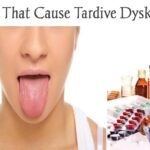Full List Of Monoamine-oxidase Inhibitors (MAOIs) Drugs

Monoamine oxidase inhibitors (MAOIs) are a class of drugs that inhibit the activity of one or both monoamine oxidase enzymes: monoamine oxidase A (MAO-A) and monoamine oxidase B (MAO-B). They are best known as highly efficacious anti-depressants, as well as effective therapeutic agents for panic disorder and social phobia.
They are particularly effective in treatment-resistant depression and atypical depression. They are also used in the treatment of Parkinson’s disease and several other disorders.
How do monoamine-oxidase inhibitors (MAOIs) work?
The brain contains numerous different types of chemical messengers (neurotransmitters) that act as communication agents between different brain cells. These chemical messengers are molecular substances that can affect mood, appetite, anxiety, sleep, heart rate, temperature, aggression, fear, and many other psychological and physical functions. Monoamine oxidase (MAO) is an enzyme that degrades or breaks down three neurotransmitters associated with mood and anxiety:
Serotonin: This neurotransmitter plays a role in modulating anxiety, mood, sleep, appetite, and sexuality.
Norepinephrine: Also known as noradrenaline, norepinephrine influences sleep and alertness and is believed to be correlated to the fight-or-flight stress response.
Dopamine: Besides influencing body movement, dopamine is also believed to be involved in motivation, reward, reinforcement, and addictive behaviors. Many theories of psychosis suggest that dopamine plays a role in psychotic symptoms.
Who can take MAOIs?
Despite their potentially serious side effects, MAOIs have been proven effective in treating depression in adults. They’re used less frequently than other antidepressants because of dietary precautions and risks of adverse reactions when combined with certain drugs.
Phenelzine (Nardil): Phenelzine, sold under the brand name Nardil, among others, is a non-selective and irreversible monoamine oxidase inhibitor of the hydrazine class which is used as an antidepressant and anxiolytic.
Tranylcypromine (Parnate): Tranylcypromine is a monoamine oxidase inhibitor; more specifically, tranylcypromine acts as nonselective and irreversible inhibitor of the enzyme monoamine oxidase. It is used as an antidepressant and anxiolytic agent in the clinical treatment of mood and anxiety disorders, respectively.
Selegiline (Emsam): Selegiline, also known as L-deprenyl and sold under the brand names Eldepryl and Emsam among others, is a medication which is used in the treatment of Parkinson’s disease and major depressive disorder.
Isocarboxazid (Marplan): Isocarboxazid is a non-selective, irreversible monoamine oxidase inhibitor of the hydrazine class used as an antidepressant. This medication treats depression by restoring the balance of certain natural substances (neurotransmitters) in the brain. Isocarboxazid can improve your mood and feelings of well-being. Usually, this medication is used in persons who have not responded to treatment with other drugs.
What are the side effects of MAOIs?
Since MAOIs work in the brain and affect neurotransmitters, they have many side effects. Side effects of MAOIs are:
• Sudden drop in blood pressure upon standing up (orthostatic hypotension)
• Lack of strength
• Weakness
• Nausea
• Vomiting
• Dizziness
• Drowsiness
• Headache
• Fatigue
• Agitation
• Abnormal voluntary movement
• Dry mouth
• Abdominal pain
• Anxiety
• Change in mood or behavior
• Weight gain
• Impotence (erectile dysfunction, ED)
MAOIs also carry boxed warnings of suicidal thinking and suicidal behavior in children, adolescents, and young adults.
Monoamine-oxidase inhibitors (MAOIs) Safety Concerns
These medications can cause other problems such as:
• Food interactions. Eating certain smoked, fermented, or pickled foods or drinking certain beverages can cause severe, sudden high blood pressure in combination with MAOIs. People taking these antidepressants must follow a special diet that includes limiting certain cheeses, meats, and alcohol. In addition, some experts think that MAOIs may be especially likely to cause mood switches from depression to mania in people with bipolar disorder, and therefore, mood changes must be monitored closely.
• Drug interactions. As with eating certain foods, taking certain medications can also cause dangerous and sudden high blood pressure when they are taken at the same time as MAOIs. This includes other antidepressants, pain medications, and cold and allergy medications. It’s important to tell your doctor or pharmacist about any medications you are taking, including herbal supplements, if you are prescribed an MAOI.
• Serotonin syndrome. A rare side effect of MAOIs is having a dangerously high level of the neurotransmitter serotonin. This can happen when you take two medications that raise your serotonin levels at the same time (like other antidepressants, some pain medications, migraine treatments, or St. John’s wort). It’s rare, but it can be life-threatening. Seek immediate medical help if you experience symptoms of serotonin syndrome, like:
o Feeling agitated or restless
o A fast heartbeat or high blood pressure
o Diarrhea, nausea or vomiting
o Hallucinations (seeing things that are not real)
o Fever or a higher body temperature
o Loss of muscle control or coordination
o Abnormal eye movements
o Sweating
o Overactive reflexes
• Suicide risk. The FDA requires all antidepressants, including MAOIs, to carry a warning that there’s a small risk they could make you more likely to attempt suicide. This risk is highest when you’ve just started taking MAOIs or the doctor recently changed your dosage.
The longer you’ve been taking an MAOI, the more likely you are to have these symptoms.
Can you take MAOIs if you are pregnant?
There’s little information on the safety of MAOIs during pregnancy. Talk to your doctor if you get pregnant while taking an MAOI or if you plan to become pregnant. Don’t stop taking any prescribed medication without letting your doctor know.
Stopping treatment
It’s important that you talk to your doctor before you decide to stop taking an MAOI. Stopping suddenly can cause withdrawal symptoms, which can be dangerous to your health, including:
• Flu-like symptoms (sweating, chills, nausea)
• Trouble sleeping
• Agitation
• Confusion
• Psychosis





